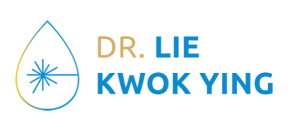When lifestyle changes and medications fail to provide adequate relief for Benign Prostatic Hyperplasia (BPH), surgery is often the next step. Surgery remains a highly effective form of enlarged prostate treatment, but like all medical interventions, it comes with both benefits and risks. Understanding these helps patients make informed choices.
Benefits of Surgical Treatment
- Effective Relief: Surgical procedures, particularly transurethral resection of the prostate (TURP) and laser surgery, are highly successful in restoring normal urinary flow and reducing symptoms.
- Long-Term Results: Unlike some minimally invasive methods or medications, surgical interventions often provide lasting results, reducing the likelihood of repeated treatments.
- Improved Quality of Life: Many men report significant improvements in daily comfort, sleep quality, and overall well-being after surgery.
- Resolution of Complications: In cases where BPH has caused bladder stones, infections, or urinary retention, surgery can resolve these issues effectively.
Risks to Consider
While surgery is beneficial, it is not without potential downsides.
- Bleeding and Infection: As with any surgical procedure, there is a risk of bleeding or infection.
- Sexual Side Effects: Some men may experience retrograde ejaculation, where semen enters the bladder instead of exiting through the urethra. Erectile dysfunction is less common but still possible.
- Urinary Incontinence: Rarely, men may experience temporary or long-term leakage after surgery.
- Recovery Time: Even with modern techniques, recovery may take a few weeks, during which patients should avoid heavy lifting and strenuous activity.
Who Benefits Most?
Surgery is particularly beneficial for men with large prostates, those who experience frequent urinary retention, or those who develop recurrent urinary tract infections due to BPH. It is also considered when medications and minimally invasive therapies fail to provide adequate relief.
Modern Advances
Today’s surgical approaches are safer and more refined than ever before. Laser therapies such as HoLEP reduce bleeding risks, while minimally invasive methods shorten recovery time.
Final Thoughts
Surgical enlarged prostate treatment remains one of the most reliable options for men with moderate to severe symptoms. With proper consultation, patients can weigh the benefits against the risks and make decisions that prioritize both safety and quality of life.
Looking for a trusted Urologist in Singapore with proven expertise and compassionate care? Visit Dr Lie Kwok Ying | Urologist In Singapore | BPH Specialist.
Clinic: Dr Lie Kwok Ying | Urologist In Singapore | BPH Specialist
Name: Dr Lie Kwok Ying
Address: 820 Thomson Rd, #02-01, Singapore 574623
Phone Number: 6553 5066
Schedule:
Monday-Friday: 08:30am – 5:00pm
Saturday: 08:30 am – 12:00 pm
Sunday / PH: CLOSED
Description: Urologist In Singapore With 20 Years Of Experience. Fellowship-trained Senior Consultant Urologist specializing in benign prostatic hyperplasia (BPH), kidney cancer, bladder cancer, and kidney stones. Pioneer in HoLEP (Holmium Laser Enucleation of the Prostate) in Singapore.
Website: https://lkyurology.com/
Email: alvernia.clinic@urology.com.sg





